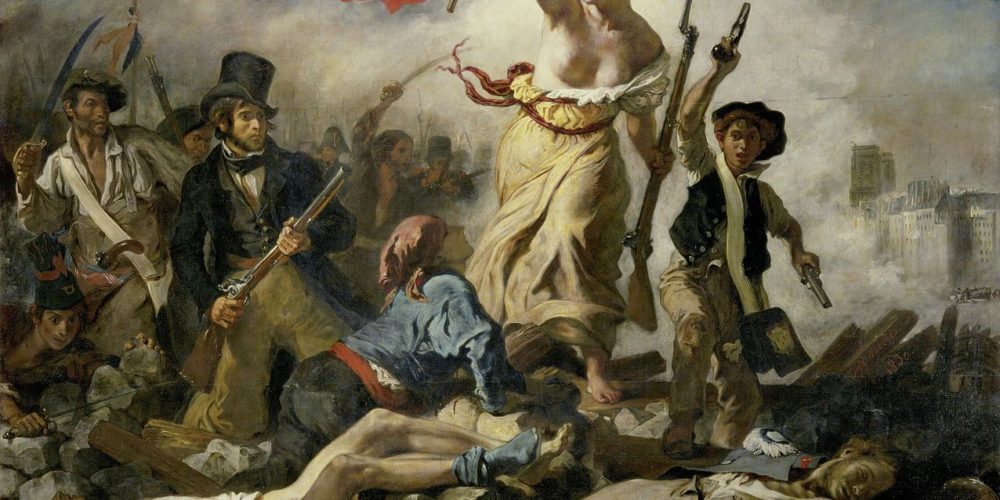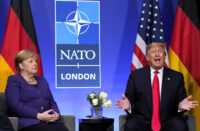This question is often posed to those who even dare suggest the possibility of a socialist future.
In today’s marketised business world we’ve been conditioned into nihilism, a belief in Man’s inherent evil, and to expect nothing more than what we get; it’s essentially Christianity without Heaven at the end. “Socialism” and “revolution” are merely idealistic dreams from the past. But the cynics do ask a fair question: When will the working class take ownership of the state and society?
As the Bolsheviks realised in 1917, we live in the era of imperialism and socialist revolution—these two phenomena being intimately intertwined. For over a century the question of a workers’ revolution has not ceased to be of immediate, practical importance to all those oppressed and exploited around the globe.
The essential features of modern imperialism—or monopoly capitalism—have remained the same: the carving up of the global economy among great powers, each striving for greater influence in order to ensure maximum control of profitable assets, resources, and markets. In open struggle or in wary alliance, the imperialist powers play upon our world like a chessboard.
But humans are far more erratic than mere pawns; and even as the preferred global order of one power is ever upset by the strivings of another, the class struggle from below throws it into further disarray. Within these contradictions of imperialism, revolution arises.
Three thunderous revolutions took place in the Russian Empire as it crumbled before two rising empires. The democratic revolution of 1905 erupted amid a failed war against imperial Japan, and the revolutions of 1917 blossomed from the misery and destruction inflicted on the empire and its peoples by the might of Germany. The German police even allowed Lenin to travel to Russia in 1917, believing his agitation would undermine the Russian war effort.
It certainly did. But, as Engels noted, “Each victory . . . in the first place brings about the results we expected, but in the second and third places it has quite different, unforeseen effects.” Lenin would lead an international revolutionary wave that not only brought down the Russian Empire but would inspire the German working class to end the war themselves and overthrow their own monarch.
In attempting to assess the global fault-lines of imperialism we must reject conspiracy-theorising. The global capitalist class are not a monolith, and as they struggle among themselves the working class must rise. During the Second World War, Japanese imperialism overstretched itself, allowing, in the midst of its defeat, national liberation and socialism to take root in China, Korea, and Viet Nam. These revolutionaries paid close attention to the contradictions of global imperialism in order to understand their own national or local situation.
Some Vietnamese revolutionaries were too eager to launch a general uprising on hearing that the Red Army had taken Berlin. Ho Chi Minh, the communist party’s leader, cautioned that if the revolution was to be successful not only must the people be ready and willing to seize power but “the enemy must be in an untenable position.” This conditions arose with the surrender of Japan a couple of months later.
In recent times an extended period of Western imperialist unity has greatly undermined the possibility of pushing through a revolution of the oppressed. But, as Mao said, “the unity of opposites is conditional, temporary and transitory . . . whereas the struggle of opposites is absolute.” With the rate of profit tending towards nil, monopoly capitalists are becoming less satisfied with their share of the pie and are growing restless. China, pulling itself out of poverty to become a global power, and investing its wealth in the global south, is severely undermining the material basis of Western imperialism. In response, the Western powers have renewed their propaganda campaign against China with greater vigour than ever.
Amid the covid-19 crisis, relations are fraying throughout the European Union, a core imperialist bloc. The alliance is unravelling, growing more militaristic and parasitic in its death throes.
The crisis of the United States is plain to see: it is an empire in decay, intensifying hostilities against Venezuela, Iran, China and North Korea in its desperation for monopoly control.
These days are looking less like the end of history and more like 1914 or 1939. This unprecedented global crisis will leave us in a world utterly changed. All that once appeared solid will have melted, and that which rises anew will be ours to shape. Short of defeating their anti-imperialist enemies, there is nowhere for the capitalist powers to expand; they are consuming themselves in their fury.
As Irish capitalism is largely governed by the dictates of British, European and US imperialism, our own emancipation is intimately bound up with these considerations. Although the world is growing darker and more volatile, the opportunity to seize a brighter future shines brighter than ever—if we are ready and willing to seize it.
Further reading and sources
(all available at www.marxists.org)
- Frederick Engels, The Part Played by Labour in the Transition from Ape to Man.
- V. I. Lenin, Imperialism, the Highest Stage of Capitalism.
- V. i. Lenin, The Third International and Its Place in History.
- Mao Zedong, On the Correct Handling of Contradictions Among the People.
- History of the Communist Party of the Soviet Union (Bolsheviks), chap. 3, 6, 7.






